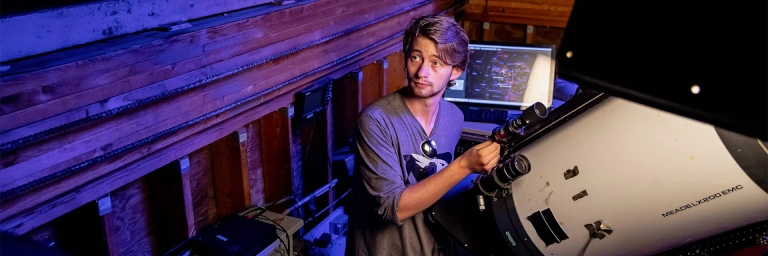
What We Offer
Human Spaceflight Laboratory
Since 2004, dedicated individuals, including students, faculty, and experts, have contributed to incorporating a human spaceflight component to the Space Studies Department at UND.
The UND Human Spaceflight Laboratory provides relevant, real-world experience to students from all over the world. The Human Spaceflight Laboratory offers formal involvement in Graduate/Undergraduate Research Positions, NASA projects, and activities related to human spaceflight. This involvement contributes to an enriched education for all involved students and staff.
The main focus of our research is the design and production of space suit and habitat prototypes. UND is the first university with a NASA-funded laboratory dedicated to designing and constructing space-exploration and planetary surface exploration suits.
Observatory
As the leader in astronomy research and education in North Dakota, the UND Space Studies Observatory is leading the way to building a dynamic and growing astronomy infrastructure in North Dakota. The UND Space Studies Observatory is the only active astronomical observatory in North Dakota and offers diverse observing opportunities with multiple Internet-controllable telescopes.
The mission of the UND Space Studies Observatory is to increase and expand the astronomical research and education infrastructure in North Dakota. As the recipient of a small amount of funding annually from NASA while also being designated as an EPSCoR state, North Dakota offers abundant opportunities to develop aggressive, ground-breaking, and new research activities that will benefit the University of North Dakota, Grand Forks, and North Dakota
The primary objectives that the UND Space Studies Observatory pursues to accomplish its mission include: 1) maintaining and operating a multi-telescope, multi-wavelength facility for the conduct of research and education projects; 2) conducting complementary research projects that assist research programs at the larger national observatories, 3) offer research and education opportunities for the study of asteroids, variable stars, and the Sun, and 4) promoting science, technology, engineering, and mathematics (STEM) education in North Dakota's colleges and K-12 schools.